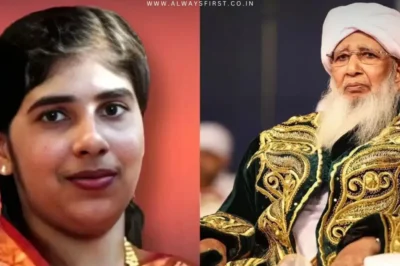Key Highlights:
✔ Last-minute reprieve: Nimisha Priya’s execution in Yemen was postponed hours before it was scheduled.
✔ Credit war erupts: Kerala politicians and activists clash over whether a religious leader or government efforts led to the delay.
✔ Fate uncertain: Despite the temporary stay, Priya’s future remains unclear as negotiations continue.
Nimisha Priya’s Execution Postponed—But Political Storm Brews Over Credit
The scheduled execution of Kerala nurse Nimisha Priya in Yemen was dramatically halted at the eleventh hour, offering a temporary reprieve for her and her family. However, the relief has been overshadowed by a heated political debate in Kerala over who should take credit for the stay.
A Race Against Time
Priya, a 38-year-old nurse from Palakkad, was sentenced to death in Yemen in 2018 for the murder of a Yemeni national, Talal Abdo Mahdi. Her execution was set for July 16, 2024, but reports confirmed a last-minute postponement.
While some attributed the delay to the intervention of Sheikh Abubakr Ahmad Musliyar, a prominent Indian Sunni scholar, others—including the Nimisha Priya Action Council—insisted that only government-level negotiations played a role.
The Politics of Credit
The ruling CPI(M) was quick to praise Musliyar, with State Secretary MV Govindan calling him “everyone’s favorite Musliyar” for his humanitarian efforts. However, critics accused Kerala’s media of exaggerating the religious leader’s influence over diplomatic channels.
Samuel Jerome of the Nimisha Priya Action Council dismissed claims of religious intervention, stating, “All discussions happened at the government level.” He thanked Prime Minister Narendra Modi, External Affairs Minister S. Jaishankar, and other officials for their role in securing the delay.
Meanwhile, the Ministry of External Affairs (MEA) remained cautious, with spokesperson Randhir Jaiswal stating they had “no information” on Musliyar’s involvement but confirmed India’s ongoing efforts to resolve the case.
A Complex Legal Battle
Priya’s ordeal began in 2017 when she allegedly sedated Mahdi—her former business partner—to retrieve her passport, leading to his accidental overdose. With India having no formal ties with Yemen’s Houthi-led government, negotiations for “diyya” (blood money) became a critical, yet uncertain, path to securing her release.
Shifting Allegiances and Controversies
The Christian Association and Alliance for Social Action (CASA), initially vocal in supporting Priya, faced backlash after downplaying her case following Musliyar’s involvement. Critics accused the group of selective advocacy, highlighting its earlier statement: “Crores are spent for others, but not a rupee for Nimisha Priya.”
What’s Next?
While the execution has been deferred, Priya’s fate remains uncertain. As Kerala’s political and religious factions continue sparring over credit, the real question remains: Will diplomatic efforts secure her freedom, or is this only a temporary pause in a tragic saga?
For now, Nimisha Priya’s life hangs in the balance—and so does the truth behind who truly saved her.






































Leave a Reply